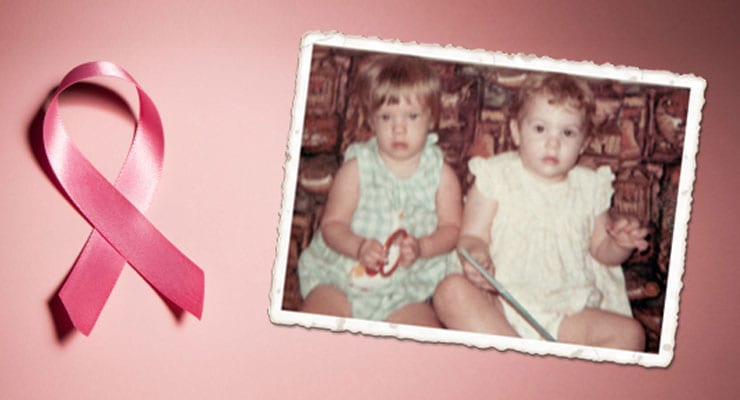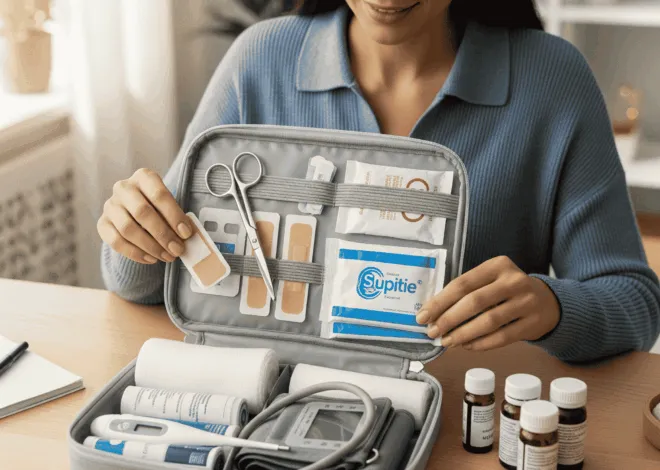By Seana Roubinek and Patricia Walters-Fischer
My best friend, Seana, got sideswiped last month.
After years of anticipating she’d get breast cancer (she’s got a very strong family history and the BRAC1 mutation), she received an unexpected diagnosis of stage 3 ovarian cancer.
Basically, this sucks.
Because we’ve been life long friends, we can say pretty much anything to each other. During this past month, we’ve talked daily (as usual) and she explained to me the reactions and changes in behavior from co-workers.
Although some were expected, others were frustrating and it got us thinking. Certainly there are many others out there who are experiencing the same things. Why not write about it?
To help all of you out there with cancer or those of you who know someone with cancer, we’ve come up with some “do’s and don’ts” when talking the Big C.
So, take it away Seana.
The eyes have it.
“The biggest thing I noticed right away is that people stopped looking me in the eyes. It was though they were afraid to talk to me or thought they’d catch it. You can talk to someone without having a conversation about cancer, but avoiding someone can make them feel like they’ve done something wrong.”
Be normal.
“Do what you’ve always done. Don’t start being extra friendly to me if you’ve never liked me before. I don’t expect you to think you’ve got to redeem yourself because I’ve got a crappy disease. Besides, don’t go changing and get all sympathetic. You’re not getting into heaven on my coattails!
On the other hand, don’t over do it and be over dramatic about it. Just be normal – sad – yes. Frustrated – absolutely, but no hysterics, please.
Look, cancer is a word, not a sentence. I’m going to fight this, no matter what, so don’t change because of this diagnosis. The perfect example: one of my best friends came up to me after she heard the news and said ‘What the f**k?'”
Just the facts, ma’am.
“You can be supportive without going into too much detail. Why is it people feel the need to tell such awful stories about others in their lives who’ve died from cancer? Or friends who had horrible experiences with chemo? I also experienced the same thing when I was pregnant. I don’t need to hear your horror stories of labor! Or your grandmother’s chemo. Geez, knock it off already! Short and sweet is perfectly fine, which brings me to my next point.”
I’m so sorry.
“When I told my boss, I had cancer, he said, ‘I’m so sorry that’s happened to you. I don’t know what else to say.’ Not knowing what to say to someone has to be normal. It’s not everyday a person tells you they have cancer, but just saying something like ‘I’m sorry’ or ‘I have no idea what to say’ is perfectly fine. There really isn’t anything great to say, but there are plenty of things not to say. Don’t feel you’ve got to fill the conversation with rambling. It’s a great way to start saying the wrong things.”
Oh God!
“I have a very strong faith, but comments like ‘God has a plan’ or ‘God always has a reason’ are really good ways to set someone off. I’m not saying to stop praying for me or sending good thoughts, but telling someone that the Big Guy planned for me to get cancer just isn’t considerate. It’s a cop out answer. Again, you can simply say, ‘I’m so sorry, would you mind if I prayed for you or set up a prayer chain?’ That’s far more productive than ‘God has a plan.’
Also, don’t use religion as a way to push the ‘you must have done something very bad and God is punishing you’ point of view. Believe me, when someone is diagnosed with cancer, all sorts of things run through your mind, including ‘did I do something wrong?’ I don’t need you to give me a running list.”
What do you need?
“Look, we all want to offer help, but when you leave it to up to me (or whomever) to call you for assistance – this isn’t going to happen. People are very bad about asking for anything so when your response is ‘Call me if you need anything,’ it’s really an empty response (although it’s obviously well intentioned). Besides, I don’t know what to call you for. I don’t know what you’re willing to do to for me.
Be specific. A friend of mine said she couldn’t cook, but she could do the grocery shopping, clean my house and her husband was willing to mow my lawn. If you’re good at organizing, set up a group of friends to alternate bringing food, calling in, checking on me after chemo, etc. There are so many little things that can be done. Just ask and keep asking if the person isn’t sure what to request.”
Here are 10 great ways to help someone with cancer:
- Gift cards (Barnes and Noble, Dunkin’ Donuts, Jason’s Deli, etc.)
- Gas cards to help offset cost from driving to treatments.
- A planner to write down all appointments.
- Bring easy to freeze, easy to serve food.
- Books or e-readers.
- Check on the caregiver and family. Give them a break from driving for appointments or everyday things.
- Call weekly to check on them.
- Clean their house/mow their grass/do their laundry.
- Fill their car with gas/wash their car.
- Be normal. Be positive, even if the diagnosis is grim, be there.
Seana Roubinek and Patricia Walters-Fischer have been friends since infants when they were put in the same crib. In the past forty plus years, they’ve been there for each other through thick and thin, college, boyfriends, and life challenges.
Seana Roubinek has a varied background including working for the world’s largest airline and two different properties of a 5-star hotel chain. While working for the hotel, she caught the “culinary bug” so she went to culinary school in New England. She loves her new career and still gets to donate her culinary skills to her true passion – helping to feed people in the community. She resides in New England with her son and a menagerie of adopted animals from the local animal shelter.
Patricia Walters-Fischer, RN, worked at the busiest Level I Pediatric Trauma Center in the United States. Before that, she worked in adult critical care and emergency room medicine for eight years. Since 2002, she traded her stethoscope for her stay-at-home-mom status and now writes full-time. Her articles have been featured in Hot Mom’s Club, the Chicken Soup, American Journal of Nursing, Nurseweek, and iVillage. She lives in Texas with her husband, children, two dogs, a rabbit and too many fish.





